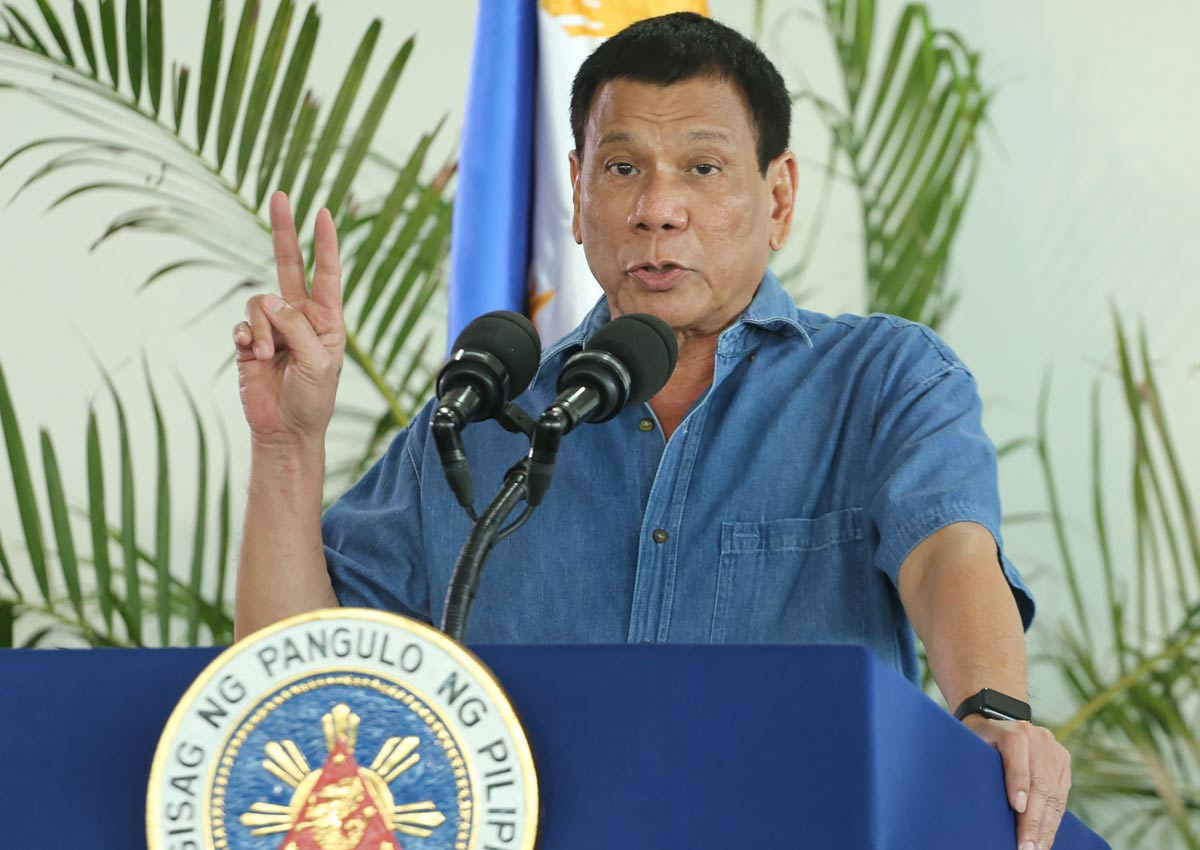THE HAGUE – President Duterte’s war on drugs, which has left more than 3,700 suspects dead, drew the attention of The Hague-based court that tries people accused of crimes against humanity
The chief prosecutor of the International Criminal Court (ICC) on Friday said her office would begin to closely follow developments in the Philippines, raising concern over alleged extrajudicial killings in President Rodrigo Duterte’s brutal war on illegal drugs.
More than 3,700 people have been killed by the police and suspected vigilantes since Duterte launched the campaign upon taking office on June 30.
“I am deeply concerned about these alleged killings and the fact that public statements from high officials of the . . . Philippines seem to condone such killings,” ICC Chief Prosecutor Fatou Bensouda said in a statement issued in The Hague.
Duterte, who won election in May on a promise to wipe out drugs and crime in six months, has been going around the country encouraging soldiers and the police to shoot to kill drug suspects who would resist arrest.
He has been offering bounties to the police who could kill drug lords and promising them protection from prosecution.
The United Nations, the United States, the European Union and international human rights groups have all raised concerns over the killings.
But the acid-tongued Duterte has rejected the allegations and called the campaign an internal affair of the Philippines.
He has called US President Barack Obama a “son of a b****” and UN Secretary General Ban Ki-moon a “fool” over their criticism.
Bensouda issued a warning: “Let me be clear: Any person in the Philippines who incites or engages in acts of mass violence, including by ordering, requesting, encouraging or contributing, in any other manner, to the commission of crimes within the jurisdiction of the ICC is potentially liable to prosecution before the court.”
She added: “My office, in accordance with its mandate under the Rome Statute, will be closely following developments in the Philippines in the weeks to come and record any instance of incitement or resort to violence with a view to assessing whether a preliminary examination into the situation of the Philippines needs to be opened.”
Willing to be Investigated
Malacañang said Duterte was open to investigation by the ICC.
In a statement, Presidential Communications Secretary Martin Andanar said the killings were not “state sanctioned” as “many of those who died were killed during legitimate police operations, which are currently undergoing investigation as directed by the President.”
Andanar said the Senate committee on justice and human rights had conducted an inquiry into the killings and its chair, Senator Richard Gordon, had found the allegations baseless. “(Gordon) has been quoted as saying that ‘there is no proof that the killings were state-sponsored,'” Andanar said.
Systematic Attack
“In any case, the President has articulated that he is willing to submit himself (to) an investigation (by) anybody,” he said.
The Philippines joined the ICC in November 2011. Bensouda said extrajudicial killings could be prosecuted if they were “committed as part of a widespread or systematic attack against a civilian population.”
Last month, Duterte challenged the United Nations and international human rights experts to come to Manila, both to investigate the killings and to face him in a public debate.
UN probe
On Wednesday, Malacañang formally issued an invitation to UN special rapporteur on summary executions Agnes Callamard to investigate the killings.
The government had initially rebuffed Callamard when she announced plans to take up Mr. Duterte’s challenge.
Callamard has since told Agence France-Presse she would discuss with Manila the date and scope of a fact-finding mission, state guarantees for her freedom of movement and inquiry, and assurances about the safety of mission members and their interview subjects.
Nothing illegal
Duterte has insisted that he and his police forces have done nothing illegal, and that law enforcers have been forced to shoot and kill after suspects put up a fight. On Thursday night, Duterte again defended his scorched-earth policy on drugs in a speech to businessmen in Pasay City, saying “it is not a crime to threaten criminals with death.”
He said he had written to Obama, Ban, US Secretary of State John Kerry, the United Nations, the UN Human Rights Commission and the European Union to explain that it was not a crime to threaten criminals.
Not brighter than he
He said “they cannot be brighter” than he, and that he could outsmart them if they came to the Philippines to investigate the killings. “I will toy with you in public. I will ask five questions that will humiliate you and 10 questions where you will agree with me,” Duterte said.
Just about to start
Speaking in Batanes on Friday, Duterte denied the government was involved in the killings.
“Who did we kill? We in the government? No one yet. We are just about to start. We are not yet involved in the 3,000,” he said.
Duterte said there was no proof that he ordered the killings, insisting that it was not a crime to threaten criminals with death. “There is nothing wrong in threatening criminals with death. By that statement alone: ‘You criminals, I will kill you. Do not fool around.’ It is a perfect statement,” he said.
Describing his critics as “fools,” Duterte vowed his war on narcotics would continue until there were no more illegal drugs in the Philippines.
“I will not stop, be sure of it. You can cast it in whatever stone. I will not stop until the last pusher, until the last drug lord is taken away,” he said.









































